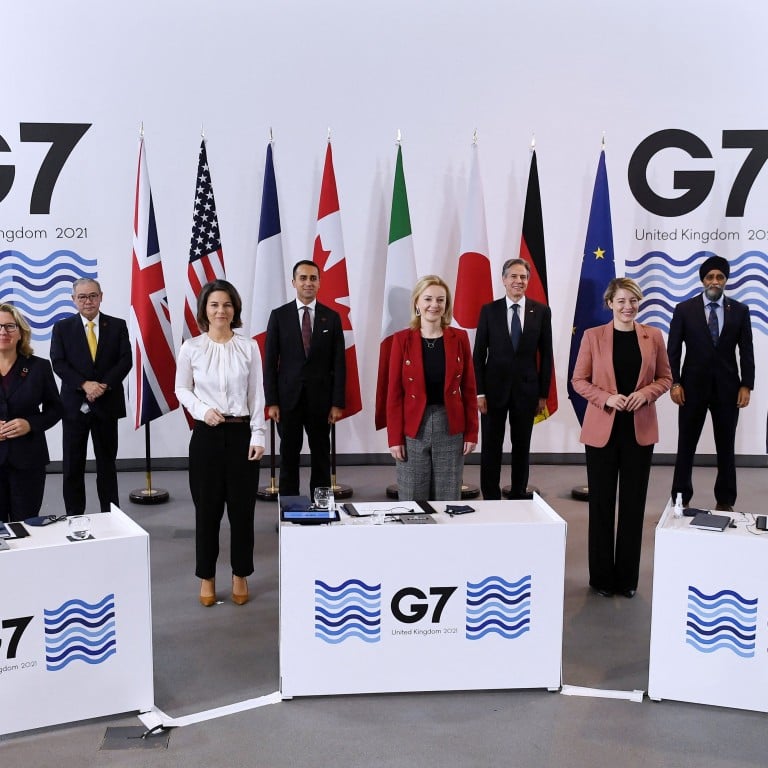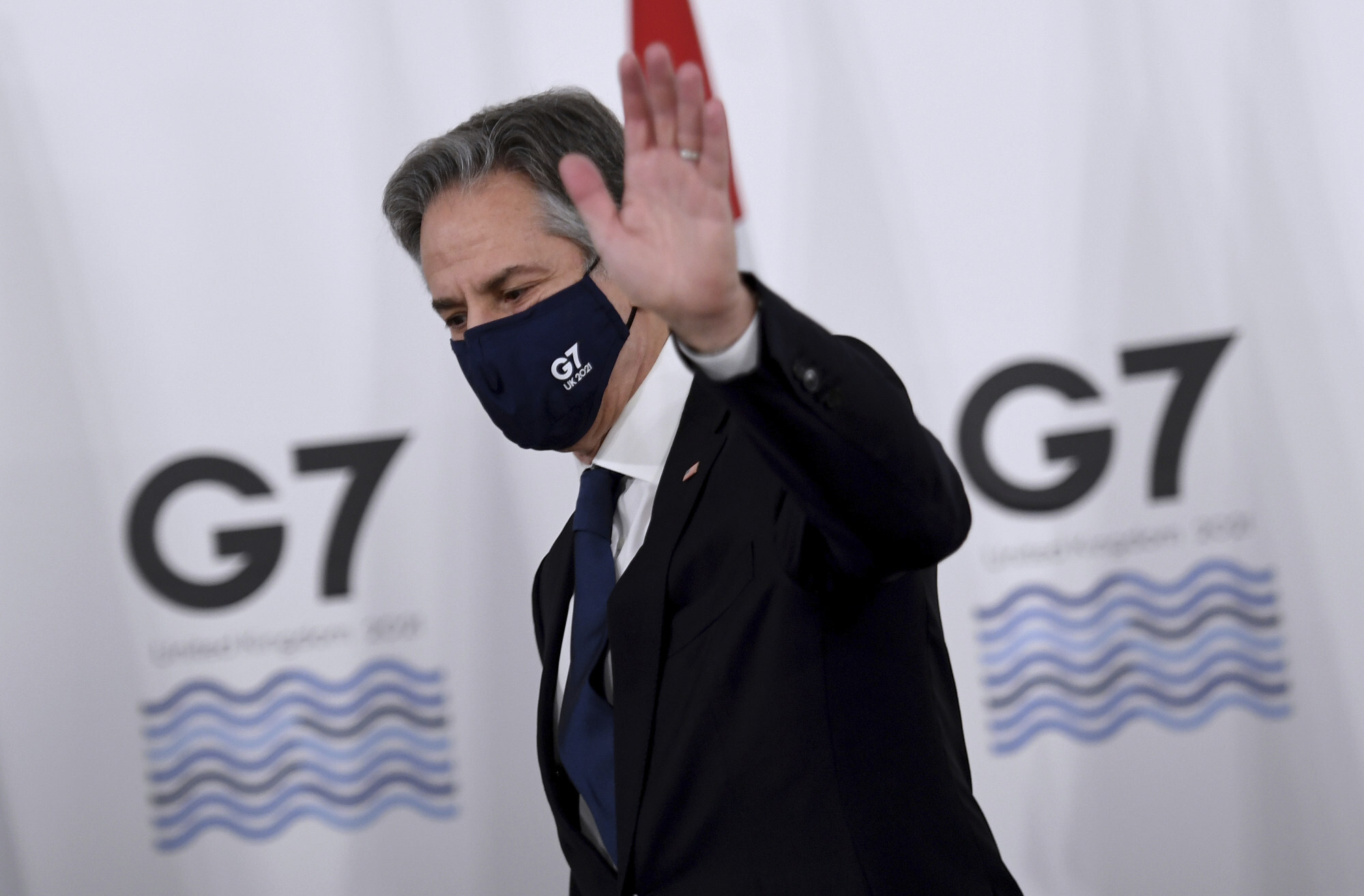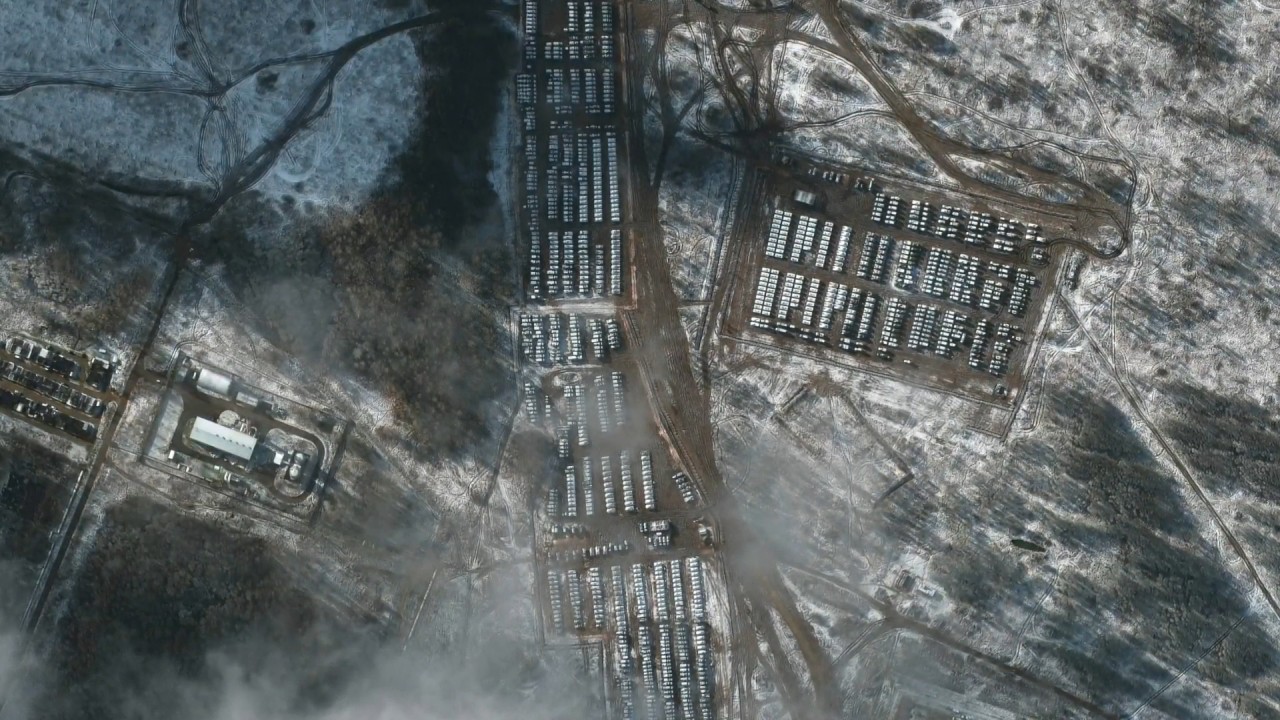
G7 fires warning shots over China’s ‘coercive economic policies’ and Russia’s military build-up
- Group of Seven discussions on China included Hong Kong, Xinjiang and the East and South China Seas
- Russia warned of ‘massive consequences’ if Ukraine is attacked
As well as efforts to align their approach to Beijing, the gathering of G7 delegates also focused on Russia’s increased military build-up on the border with Ukraine, discussions that resulted in a warning of “massive consequences” if Moscow attacked Kyiv.
The ministers also discussed Beijing’s actions in the East and South China seas and the “importance of peace and stability across the Taiwan Strait”, and expressed their “concern about [China’s] coercive economic policies”, Truss, who chaired the meetings, said in a statement.
Beijing hit back Monday by calling the G7 discussion of China “interference in its domestic affairs” and “vilification of China’s image”.
Foreign ministry spokesman Wang Wenbin also highlighted the death toll in Britain and the US from the coronavirus, and urged the two countries to respect their own human rights.
“We urge countries like the United States and the United Kingdom to safeguard their own people’s lives and health, try to avoid further loss of life in the pandemic instead of having this empty talk about democracy and human rights,” Wang said.
Faced with Beijing’s economic coercion of other nations, Truss said separately at a press conference that the seven countries hoped to “build the investment reach [and] the economic trade reach of like-minded, freedom-loving democracies.”
As well as stepping up investments into low and middle income countries, the G7 was working with partners to “make sure that technology is shaped by the free world, particularly standards in areas like artificial intelligence and quantum technology,” she added.
China’s investment in diplomacy falls, as its global ambitions rise
Those remarks come amid continuing criticism from Western nations around the debt footprint of China’s Belt and Road Initiative, as well as growing concerns in Europe over Beijing’s punitive measures against Lithuania for deepening its ties with Taiwan.
The G7 is formed of the United States, Britain, Canada, France, Germany, Italy, and Japan, plus a representative of the European Union.
The two-day meeting of G7 foreign ministers, the second of the year, saw sessions dedicated to the Indo-Pacific region, to economic investment, and geopolitical and security issues, among other subjects.
While public statements following a session with representatives of Southeast Asian nations did not mention China by name, Beijing’s increased geopolitical presence in the region was the obvious subtext to much of those discussions.

Foreign ministers discussed “the importance of maintaining a free and open Indo-Pacific, which is inclusive and based on the rule of law,” Truss said of the meeting with members of the Association of Southeast Asian Nations (ASEAN).
“We also discussed regional and security issues, in addition to maritime cooperation and state behaviour in cyberspace,” said Truss.
It was the first time that Asean – comprising Brunei, Cambodia, Indonesia, Laos, Malaysia, Myanmar, the Philippines, Singapore, Thailand, and Vietnam – had taken part in G7 meetings, a sign of the region’s “growing importance”, according to the British hosts.
Also paying increased attention to the region and its relationship to Beijing is Washington, with US Secretary of State Antony Blinken set to travel on Monday to Southeast Asia, where he is expected to discuss with counterparts China’s actions in the South China Sea, its human rights record, and what US officials say are efforts to undermine the “rules-based order.”
In Liverpool, foreign ministers also discussed potential coordinated action to counter disinformation from the Chinese government, as well as ways to support countries that have been left with high burdens of debt in the wake of Beijing-backed investment projects, according to unnamed US officials cited by Reuters.
China puts foreign policy front and centre with diplomatic dream team
On rising tensions on the Russian-Ukraine border, the G7 delegates “reaffirmed our unwavering commitment to Ukraine’s sovereignty and territorial integrity, as well as the right of any sovereign state to determine its own future.”
The foreign ministers also welcomed the resumption of negotiations in Vienna around the restoration of the Joint Comprehensive Plan of Action (JCPOA), the deal limiting Iran’s nuclear programme from which the US withdrew under former US President Donald Trump.
And in remarks on democratic freedoms that did not name China but uplifted long-standing concerns about Beijing’s human rights record, the foreign ministers expressed “resolve to deter and end arbitrary detention for diplomatic leverage” and highlighted the importance of media freedoms, Truss said.


